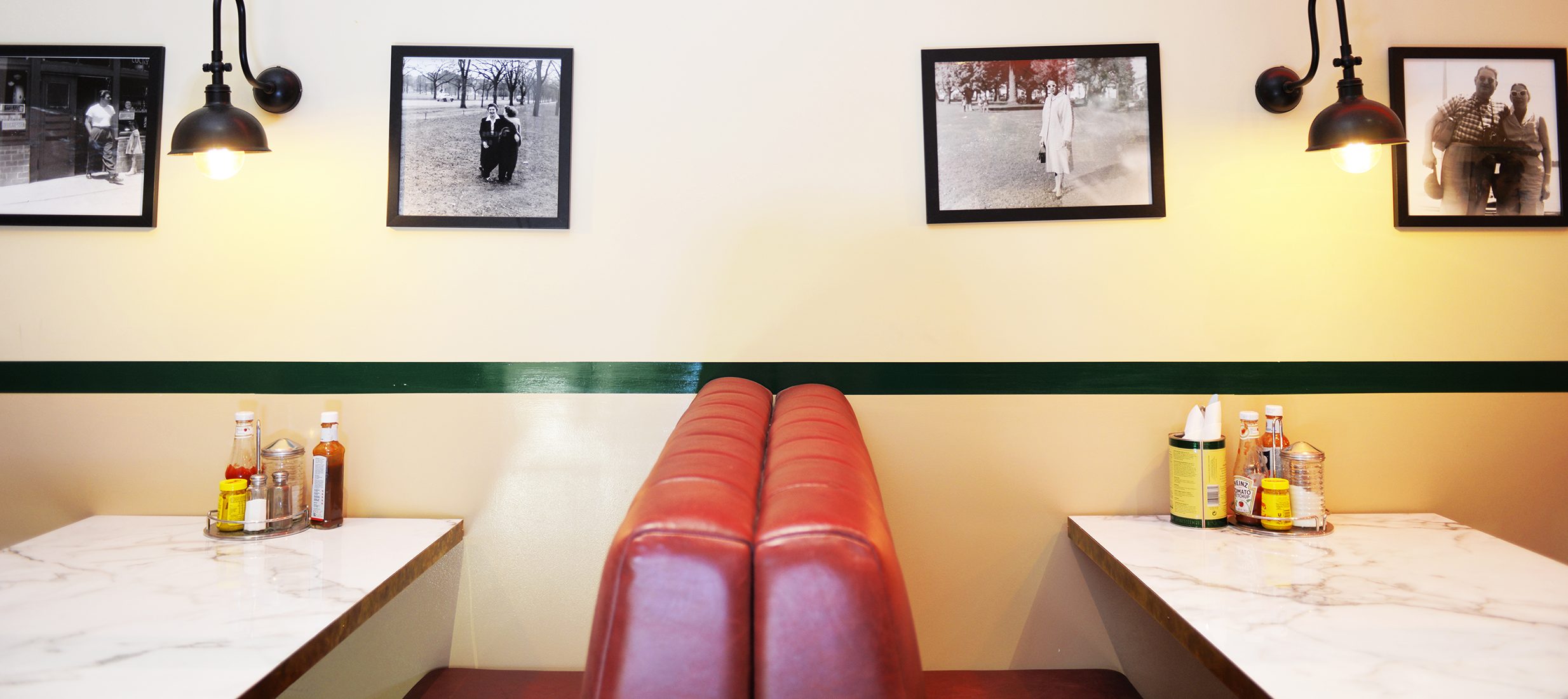Joan Bakewell, Baroness Bakewell of Stockport, is at 82 still fully involved in socialist politics. A few years ago Harriet Harman asked her to help with the equalities bill by being ‘the voice of older people’.
“It was an unofficial position. I visited and talked to people. In the end I found it depressing because I couldn’t put right what was wrong. A lot of people wrote to me with heart-breaking stories, and all I could do was put them in contact with people they knew about already. There is a great need out there and it depressed me that I couldn’t solve the problems. But the government were pleased that these problems were being aired; and they are still being aired.”
Then Ed Miliband approached Joan and asked her to be a working peer. The problem was, Joan explained, that for the first time she had not voted Labour because of Tony Blair and the illegal Iraq war. On reflection they both agreed she would do it.
“I go into The House three days a week, and on Thursdays if there is a three-line whip. There’s a lot going on and a lot of people putting in a lot of effort to make things better. I sat on the Communications Committee and am now on the Works of Art committee.”
As well as mixing with peers, Joan is also a patron the National Piers Society. This is her secret side.
“It’s just a little fad of mine, nothing more than that. When I see a seaside pier my heart lifts. I always want to get on it and walk the length of it. First of all it’s halfway between the land and the sea, and when you walk out you look back and get a view of the coast. Secondly you have to remember that a pier has a double layer. On the top it’s jollity and people and shows and cafes. It’s all happiness. Underneath it could be the set of a thriller. It’s the most sinister eerie setting you could imagine. I love the contrast between the two.”
These piers lead Joan to her very working-class roots.
“Nuances of class are very complex. My grandfather had been a cooper in a brewery, a very skilled trade. It was his boast, and I’m sure it was true of all coopers, that you could make a barrel without using any measurements. They lived in a terrace house and had eight children. My mother was the eldest daughter. My father’s parents died young. My father went to Chetham’s School. Now it is the prestigious and very expensive Chetham’s School of Music. It was then an orphanage which took poor boys to ready them for work in the industries of Lancashire. He became an engineer in a factory. My mother would have done very well, but she left school at thirteen and became a tracer in the same office as my father. That’s where they met. Eventually they made the big social leap from terraced house to semi-detached. They took great pride in that. And when I was eighteen they moved to a detached house, which was a triumph of social mobility in Cheshire. My father became a chairman of the engineering company where he’d worked for 40 years.”
Joan’s love of piers probably has something to do with childhood holidays in Blackpool, which had three piers and pretty much everything else. The year Joan was born, 1933, J. B. Priestley described Blackpool in English Journey: “Nature presented [Blackpool] with very bracing air and a quantity of firm sand; and nothing else. There is no less charmingly situated resort anywhere. Its citizens must have realised at once that charm and exclusiveness were not for them and their town. They must have decided immediately to make a move in the opposite direction. They would turn it into a pleasure resort for the crowd and especially the Lancashire crowd from the cotton mills.
Blackpool would give them what they wanted and make no bones about it. Compared with this huge mad place, with its miles and miles of promenades, its three piers, its gigantic dance-halls, its variety shows, its switch-backs and helter-skelters, its array of wine bars and oyster saloons and cheap restaurants and tea houses and shops piled high and glittering with trash; its army of pierrots, bandsmen, clowns, fortune-tellers, auctioneers, dancing partners, animal trainers, itinerant singers, hawkers; its twenty special trains a day, its hundreds and hundreds of thousands of trippers; places like Brighton and Margate are merely playing at being popular seaside resorts. Blackpool has them all licked.”
Between Priestley’s description and Joan’s visits as a child, the Second World War had intervened but the town was much the same.
“Blackpool was great place to go to. Visiting the three piers was great excitement. There were variety shows in the theatre at the end of the pier and I remember them with great fondness. That was the first live theatre I ever saw. It’s all wrapped up with the fun of my childhood holidays: rides on the donkeys, the Punch and Judy shows and all that. It was the English seaside, which doesn’t really exist any more, or if it does, it’s hard to find.
Then the beaches were absolutely glorious. I remember, I can feel it to this day, the hard ripples of sand hurting my bare little feet. We made wonderful sandcastles. It was all kiss-me-quick hats and sticks of rock and get onto the beach quick. The beaches were crammed. You made your own settlement and built your sandcastles. There was always a brisk breeze. I remember you always put one of those stand-up windmills on top of your castle and they would rattle.”
But every childhood has to end. It was implicit in the working-class culture that if you work hard you get on, and when Joan was eleven the 1944 Education Act was passed. Joan went to grammar school. It’s a sobering thought that if she’d been two years older, her life would have been very different. As it was, at eighteen she left home with a scholarship to Cambridge University. “I went from Stockport with smoking chimneys – we’re talking J. S. Lowry here – strong communities, a big workforce, industrial pollution, productivity, secure jobs and national pride. We had the Manchester Guardian. Peterloo and the Pankhursts were in everybody’s memory. There was civic pride. I left all that and went to a haven of leafy academic life.”
I’m not sure that Joan will forgive Jack Priestley his solecism of forgetting to mention women in his later memoir, but his description of the Cambridge she would have known rings true: “Certainly we must fill Oxford and Cambridge with young men no matter where they come from who are eager to acquire the knowledge offered them. But it will be a bad day for England when all these young men stop enjoying themselves; no matter how idiotic their high spirits may appear, their enjoyment, daft high spirits and all may be as necessary to us as their science and scholarship. Lord help us if every position of authority should be filled by grim prigs who never enjoyed themselves at any time.”
No danger of that, Jack, in the Cambridge Joan went to. True, it was full of people entirely concerned with learning and scholarship. But this was not learning to get on in life. It was learning for its own sake. I have a feeling that, when Joan was there, Cambridge was enjoying a golden age. It is certainly true that she and her friends transformed the arts over the next few decades, and I have no doubt that similar transformations took place in science, medicine, engineering.
“We wanted to study. We wanted knowledge for its own sake. It was the biggest move in my whole life, in my head and geographically. I moved into an entirely different community. People talked about ideas, discussed everything. They ran theatre, plays, musical groups. People loved activity and were very lively. That’s when I made the great leap of belonging to a different world. It was nothing to do with wealth. It was about moving into a place that was concerned with analysing and understanding ideas.”
Joan Bakewell’s life since leaving Cambridge and coming to Primrose Hill 52 years ago is well documented. Her interest in piers is not. She does not make a big song-and-dance about it, doesn’t go to conferences and take pictures, but she knows all the good ones and has visited them. Recently her grandson had his eighteenth birthday. So they had a party at the end of Weston-super-Mare pier. They took a big table with balloons and celebrated in style. Like the piers, Joan is still elegant and full of life. And there is plenty more to come: her new book Stop the Clocks, out next year, explores the business of getting old and how she feels about it.
Article by The Mole On The Hill
Photograph of Joan by Lars Christiansen




